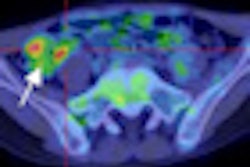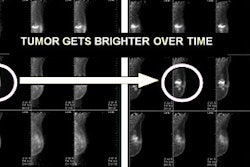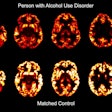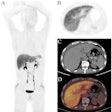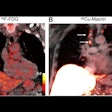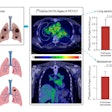With the help of FDG-PET, researchers have found that inflammation in the body or within the brain can cause an increase in depressive symptoms and metabolic changes in the parts of the brain that are responsible for mood and motivation, according to a study published in the April issue of the Journal of Nuclear Medicine.
The findings from the Yale School of Medicine in New Haven, CT, could help in the selection of the appropriate treatment for patients who exhibit depression due to symptoms that are related to their inflammation.
The effect of inflammation in the body on the brain previously has been shown in a few human studies through measurements of behavioral changes and brain imaging while subjects handled various computer tasks. This study marks the first time the same brain activity was measured when subjects were at rest.
Lead study author Dr. Jonas Hannestad and colleagues noted that FDG-PET measures glucose metabolism in the brain, thus showing which brain regions respond to systemic inflammation. Since the patients were at rest, Yale researchers observed changes in the brain that can only be attributed to systemic inflammation.
A total of nine healthy individuals received a double-blind endotoxin, which is designed to elicit systemic inflammation and mild depressive symptoms, such as fatigue and reduced social interest. The subjects also received a placebo on different days.
After administration, FDG-PET was used to measure the differences in the cerebral metabolic rate of glucose in the insula, cingulate, and amygdala regions of the brain.
The results showed that endotoxin administration was associated with a higher normalized glucose metabolism in the insula and lower glucose metabolism in the cingulate, compared to the placebo. There also is no significant difference in glucose metabolism in the amygdala.
Seven of nine subjects had an increase in normalized glucose metabolism in the insula and a decrease in metabolism in the cingulated, and all nine subjects had a decrease in the right anterior cingulate, suggesting that systemic inflammation results in fundamental physiologic changes in regional brain glucose metabolism.





